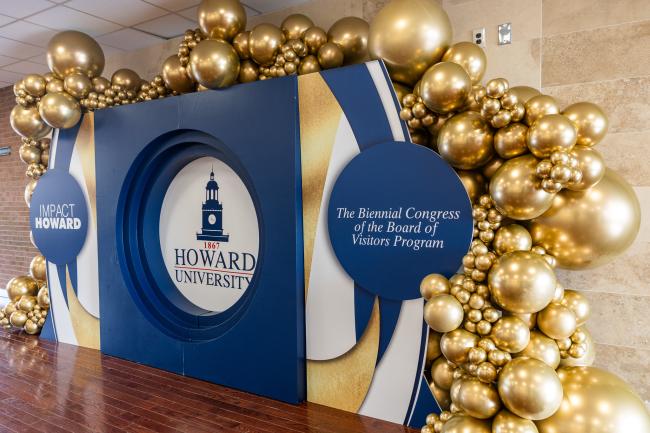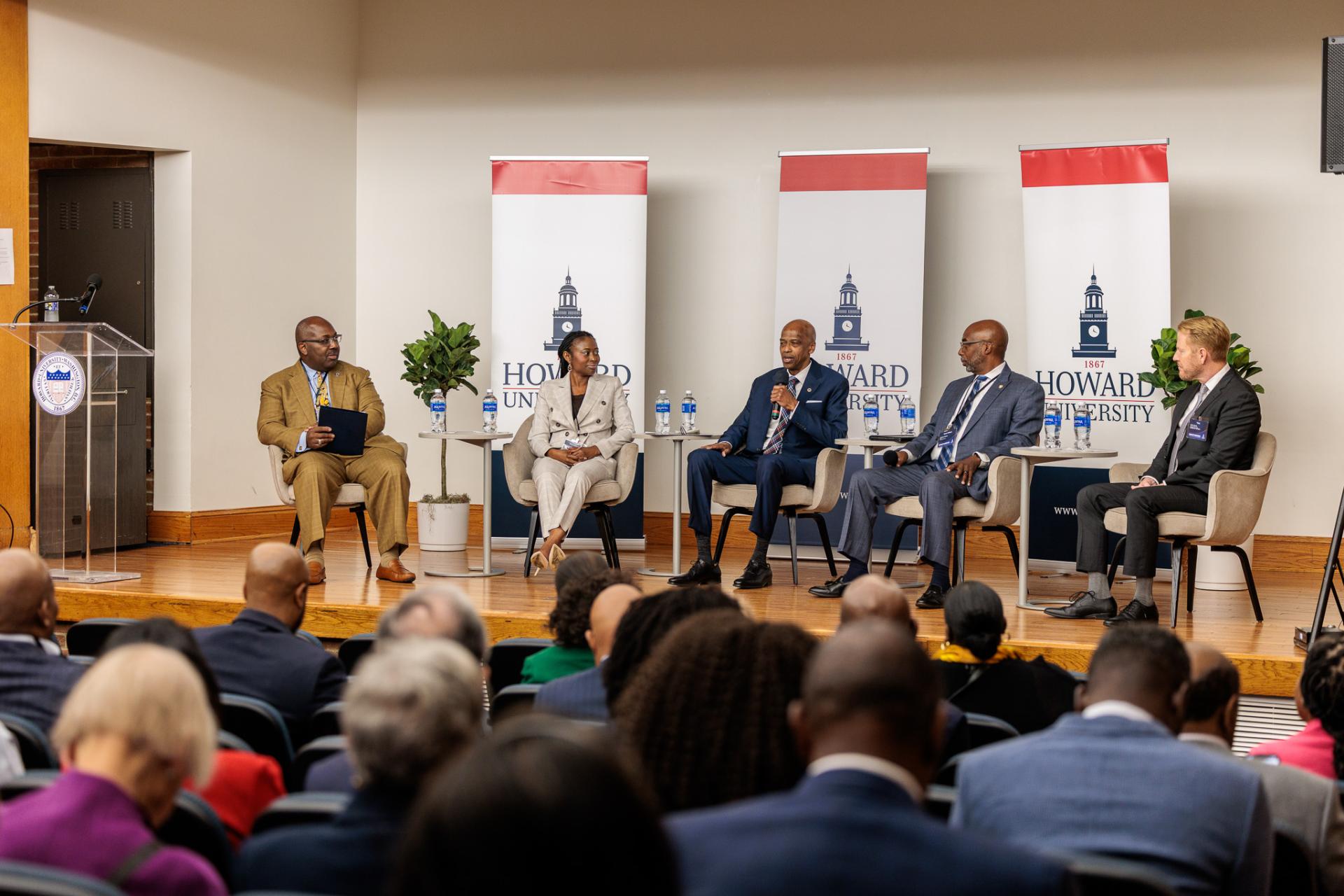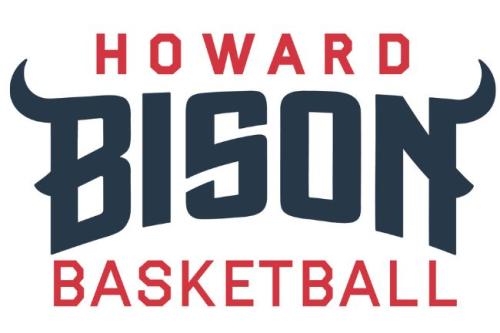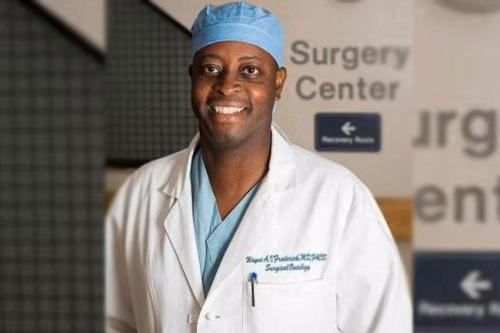Howard University welcomed more than 75 Board of Visitors (BOV) members alongside deans, trustees, and senior leaders Sept. 18-19 for the inaugural Biennial Congress of the Board of Visitors Program.
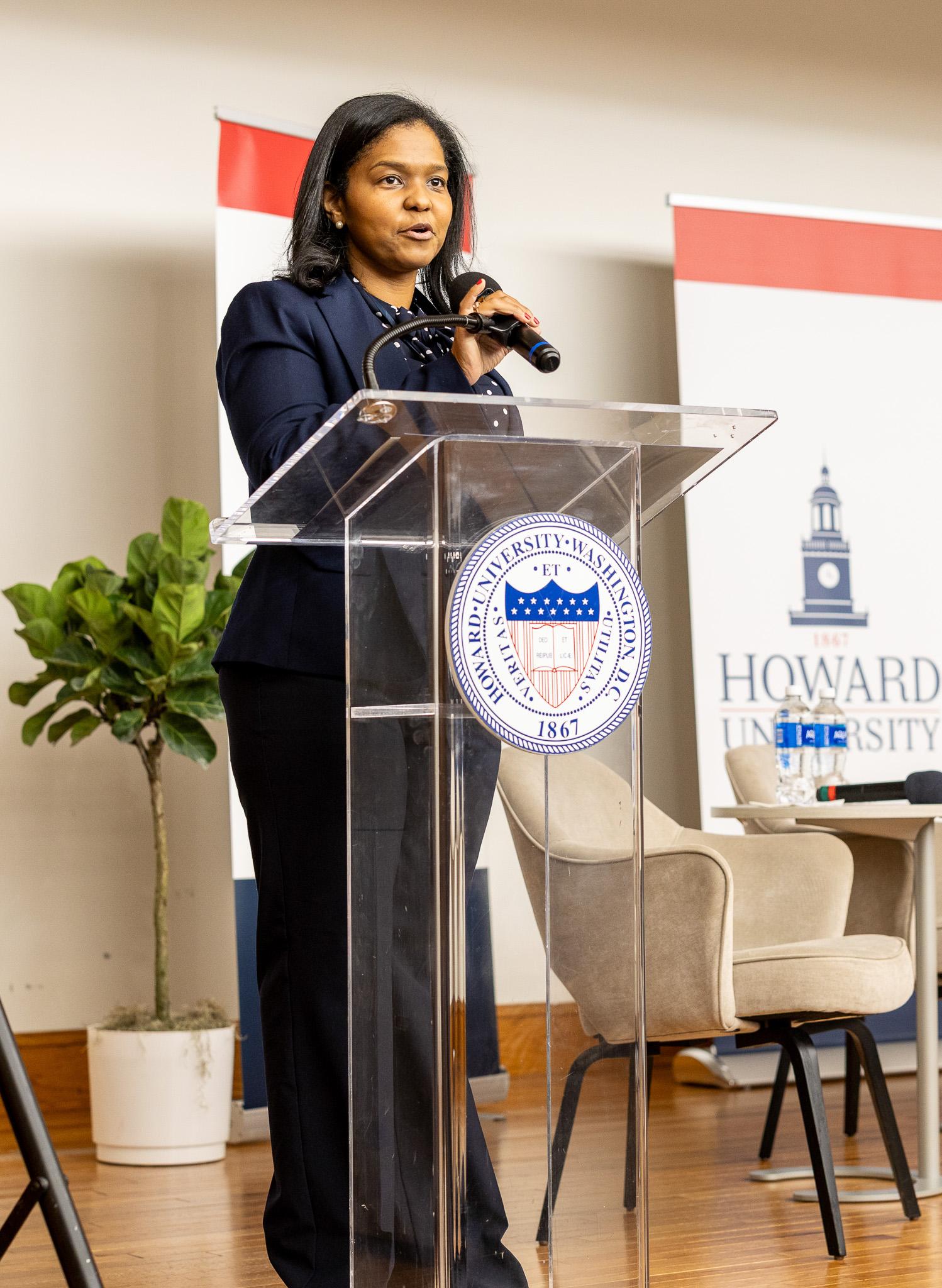
Entitled “Impact Howard,” the first-of-its-kind gathering was designed to align Howard’s school- and college-level advisory boards around shared priorities and measurable outcomes. Coordinated by the Office of the Secretary and BOV Program director of strategic operations Lakia Young, the two-day convening set an action-oriented tone for partnership across the university.
Hosted primarily at the Blackburn University Center, the congress opened Thursday (Sept. 18) with a welcome and program overview from Young, followed by an address from Interim President and President Emeritus Wayne A. I. Frederick, M.D., MBA.
“The Biennial Congress marks a historic convening, the first of its kind but certainly not the last,” said Young. “We are building a Board of Visitors Program that will outlast any one of us currently serving or supporting it. Our goal is to create a foundation that endures for generations and advances the Howard University community in ways we have only begun to imagine.”
Frederick’s remarks framed the moment as both historic and urgent. “Your service is not simply symbolic; it is consequential,” he said, emphasizing how BOV members open doors for students, inform curricula, and champion philanthropy that meets real needs.
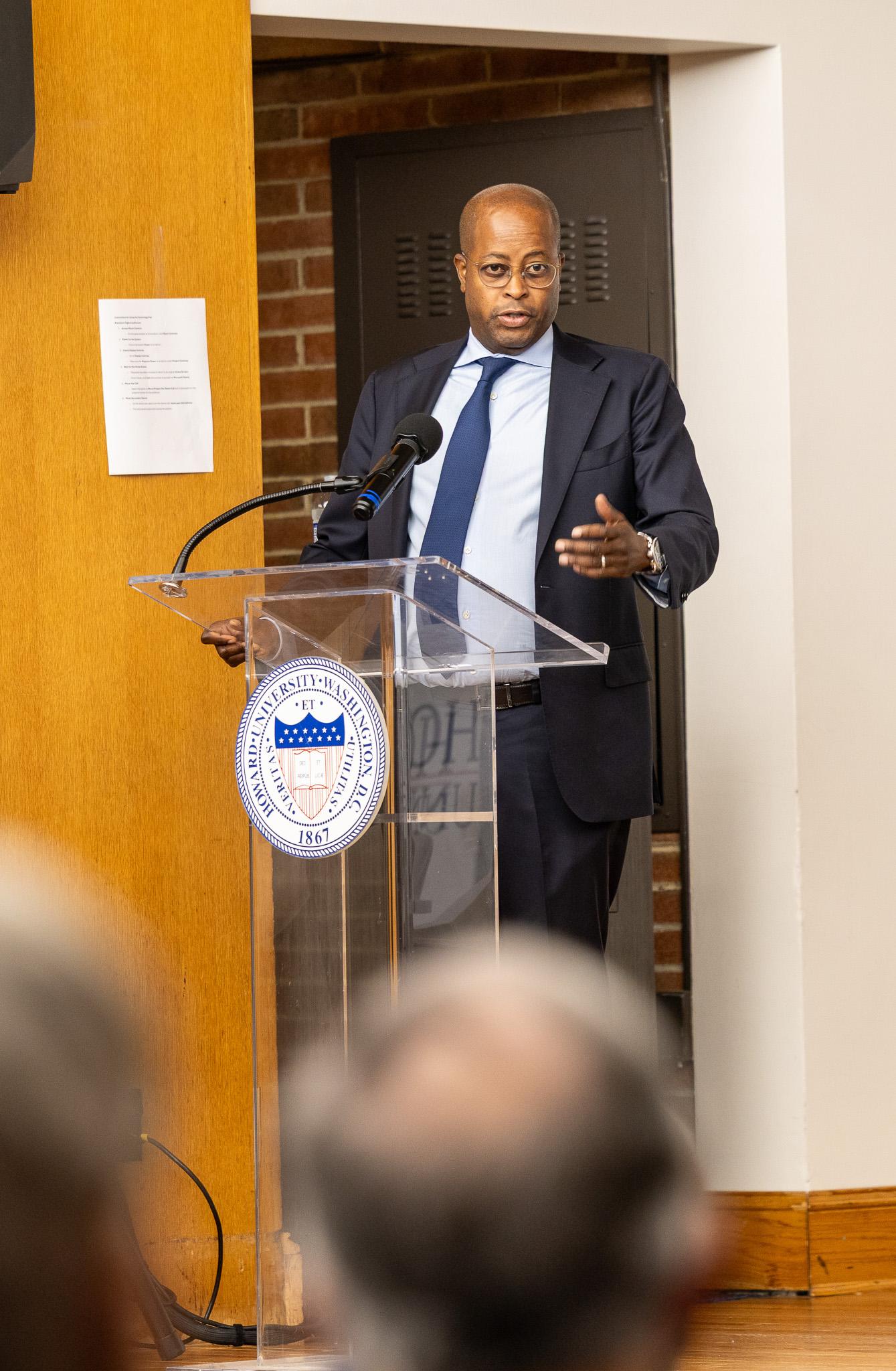
Frederick challenged participants to “advise with candor, advocate with influence, and activate with urgency,” a three-part charge that echoed throughout subsequent sessions.
“At moments like this, great universities lean on mission-aligned partners for honest counsel, creative problem solving, and catalytic support,” Frederick said. “That is the essence of our Boards of Visitors, and the promise of this biennial gathering.”
Frederick urged the boards to institutionalize mentoring, internship and clinical pipelines, and career treks; co-develop capstones and short modules on emerging topics like AI, compliance, and creative entrepreneurship; and help faculty accelerate research with purpose through sponsored projects and practitioner partnerships. He underscored that none of these are abstractions.
“These are achievable targets when a community organizes around them,” Frederick said. “That is precisely what today is about.”
At moments like this, great universities lean on mission-aligned partners for honest counsel, creative problem solving, and catalytic support. That is the essence of our Boards of Visitors, and the promise of this biennial gathering.”


